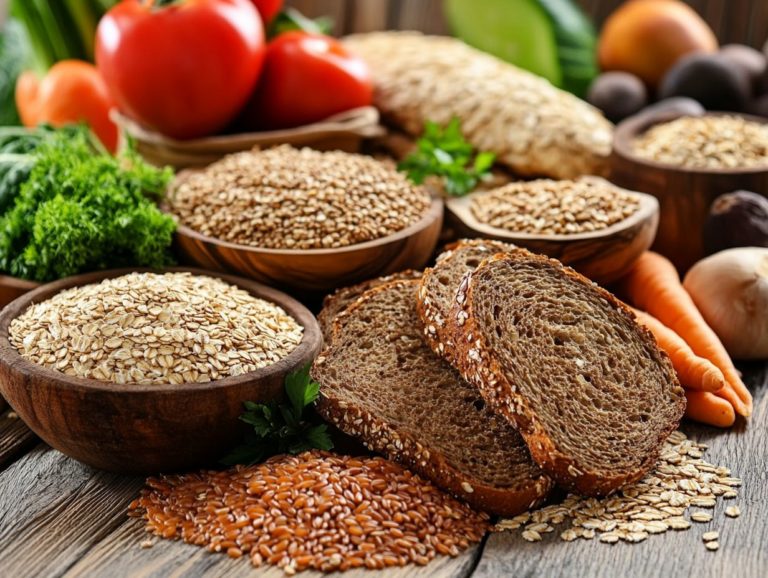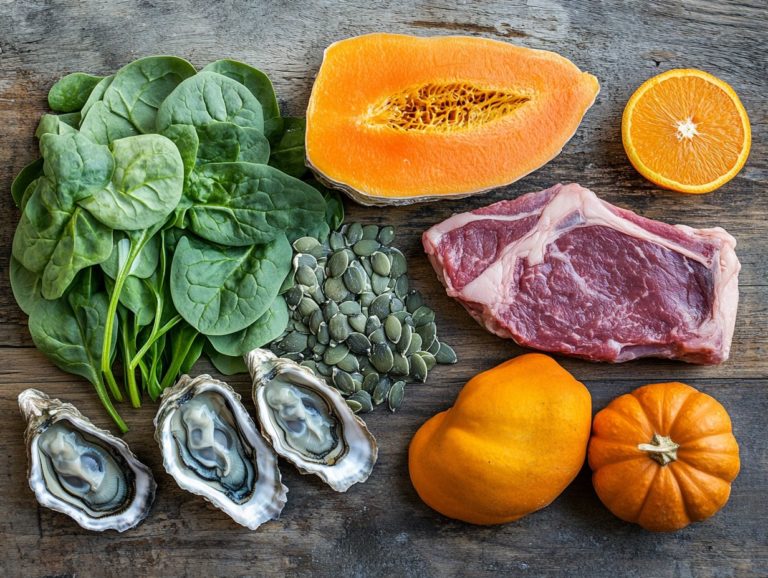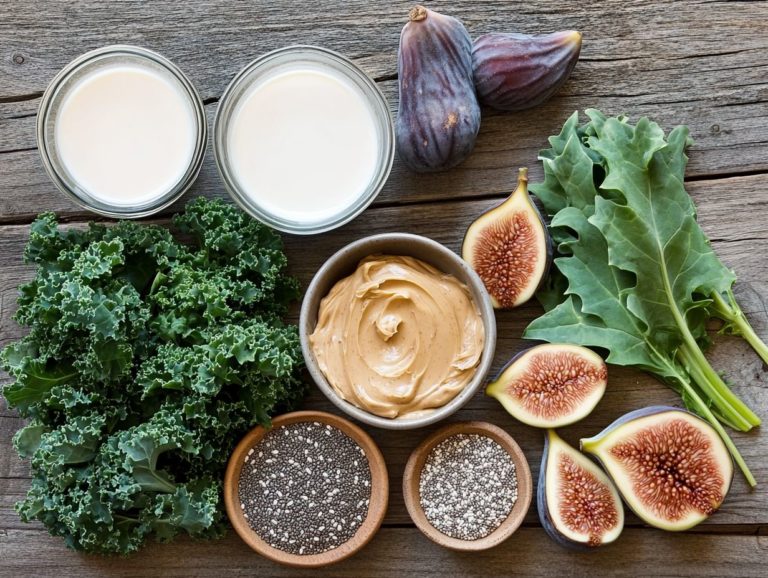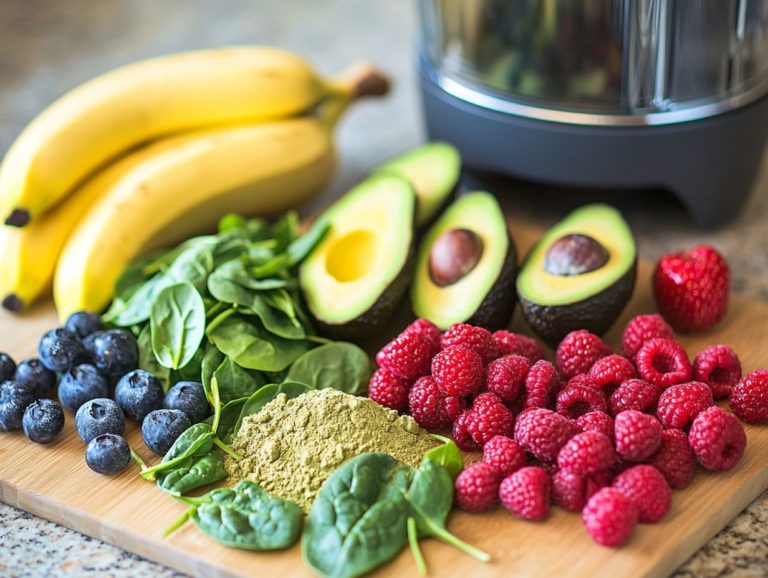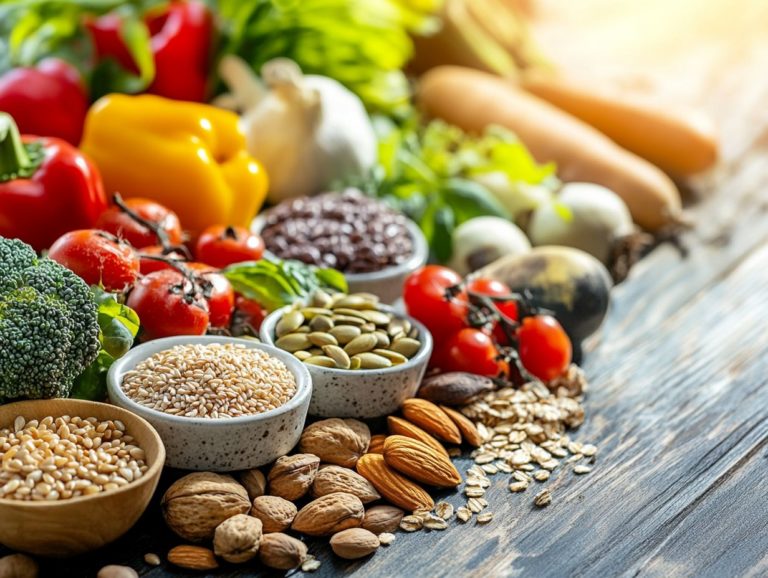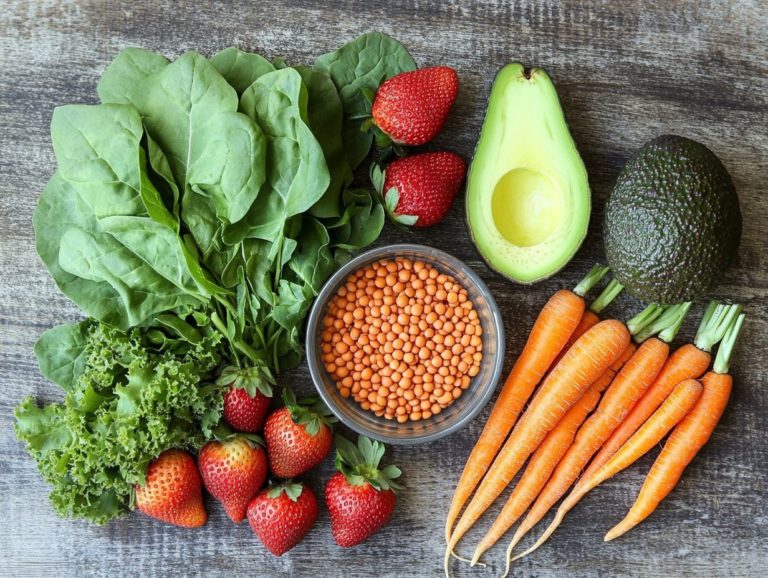Exploring the Best Sources of Vitamin K
Vitamin K is essential for maintaining your health, playing an important role in everything from blood clotting to promoting bone strength.
With its two primary forms K1 and K2 this vitamin is readily available in a variety of foods and supplements.
You ll discover what Vitamin K truly is and why it s indispensable. We ll delve into its different types and functions and uncover the best food sources to elevate your intake.
Furthermore, we will tackle potential deficiencies and the health implications of excessive consumption, offering crucial insights into this vital nutrient.
Contents
Key Takeaways:
- Vitamin K is essential for blood clotting, bone health, and heart disease prevention.
- The two main forms of Vitamin K are K1 and K2, each with different functions in the body.
- Leafy greens, cruciferous vegetables, and fermented foods are some of the best dietary sources of Vitamin K.
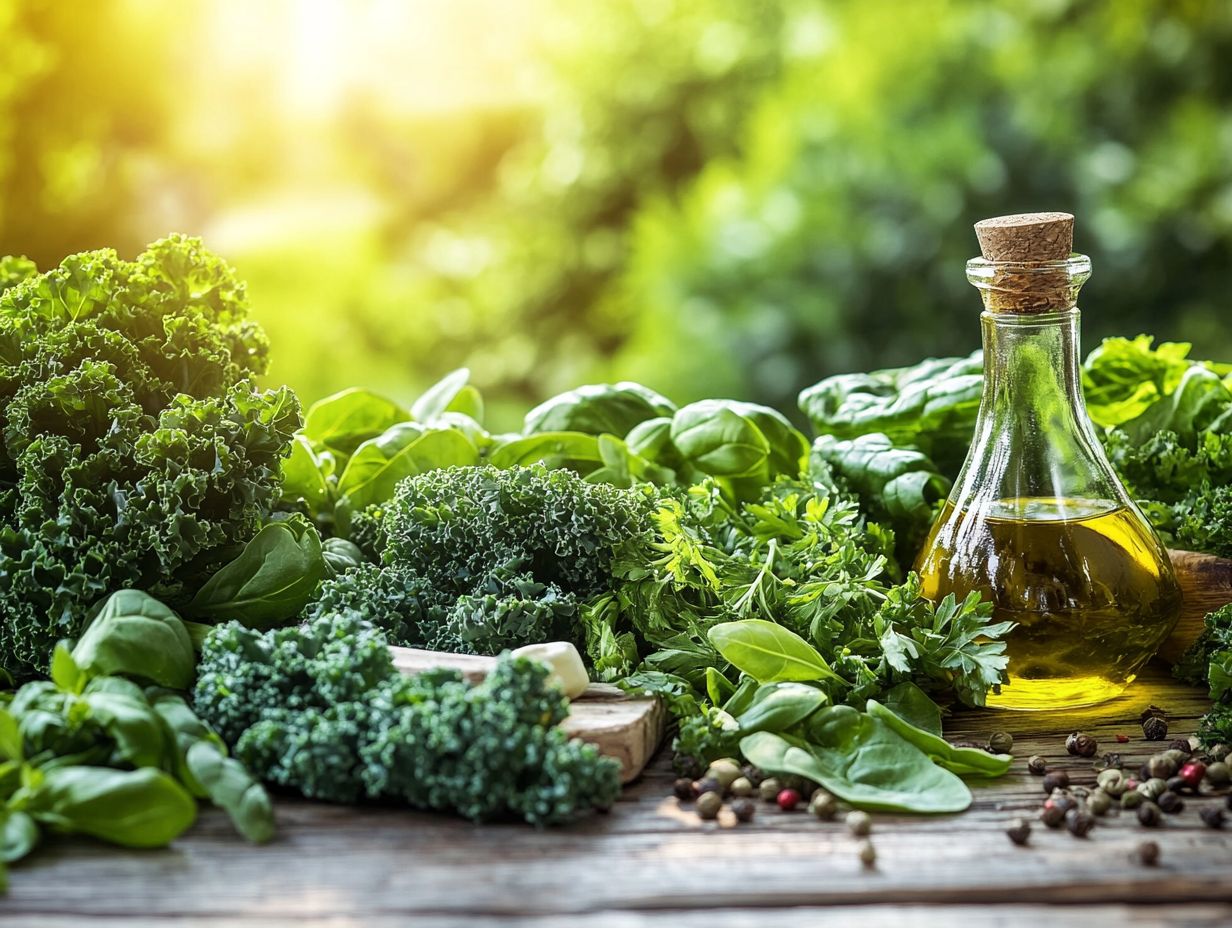
Understanding Vitamin K
Understanding Vitamin K is key to maintaining optimal health, as it plays a crucial role in various bodily functions, including blood clotting and bone health.
This fat-soluble vitamin exists primarily in two forms: vitamin K1, which is found mostly in leafy greens, and vitamin K2, which comes from fermented foods and some animal products.
Consulting a registered dietitian can provide valuable insights on how to effectively add this vital nutrient to your diet while following dietary guidelines.
What is Vitamin K and Why is it Important?
Vitamin K is a fat-soluble vitamin that is essential for blood clotting and maintaining bone health, making it a critical nutrient for your overall well-being.
This vital vitamin helps synthesize proteins necessary for blood clotting, allowing wounds to heal effectively and reducing the risk of excessive bleeding.
Vitamin K also helps with bone health by binding calcium to the bone matrix, enhancing bone strength and lowering the risk of fractures.
A deficiency in this nutrient can lead to serious health concerns, such as increased bleeding tendencies or weakened bones, which can elevate the risk of osteoporosis.
It’s important to add foods rich in this vitamin, like leafy greens and fermented products, to your meals to keep your health at its peak.
Types of Vitamin K
There are two primary types of Vitamin K vitamin K1 and vitamin K2 each with its own unique functions and roles in how your body absorbs nutrients.
Different Forms and Their Functions
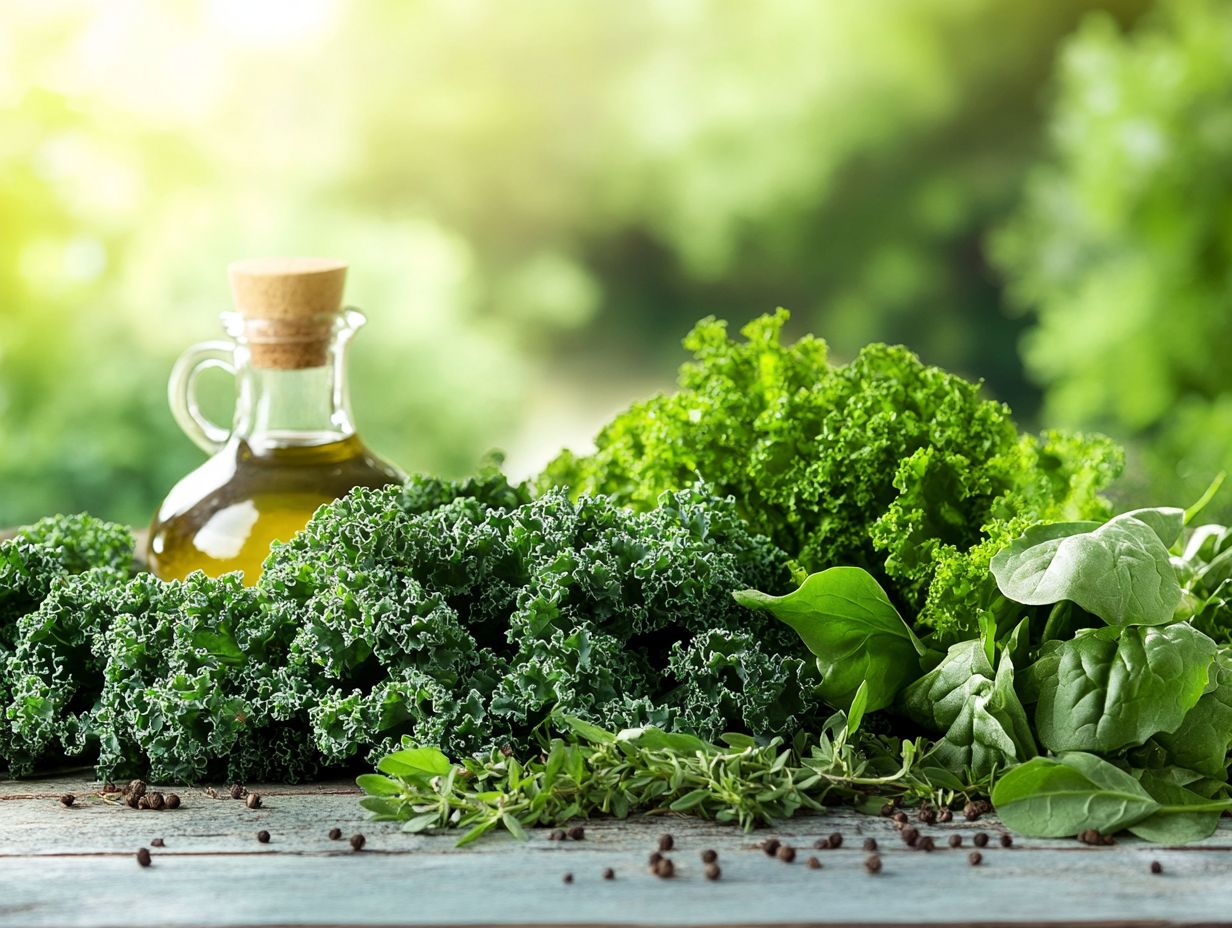
Vitamin K1 mainly aids in blood clotting, while vitamin K2 plays an important role in bone health and heart health.
Vitamin K1 is crucial for making prothrombin, a protein that helps your blood to clot. This means K1 helps prevent excessive bleeding by facilitating clot formation and may also influence how effectively your body absorbs calcium.
In contrast, vitamin K2 promotes bone strength by helping transport calcium to bones and teeth, which can reduce the risk of fractures. For example, incorporating vitamin K2-rich foods like fermented soy products or certain cheeses into your diet may improve your bone density.
Vitamin K2 also has potential heart health benefits, as it helps prevent calcium from depositing in arteries, contributing to better cardiovascular health.
Together, these vitamins significantly enhance your overall wellness. They not only serve their individual functions but also work in harmony to boost nutrient absorption and promote long-term vitality.
Food Sources of Vitamin K
You ll find food sources of vitamin K are wonderfully diverse. It’s present in leafy greens, fermented foods, and heart-healthy oils, all of which play a vital role in ensuring you absorb this essential nutrient effectively in your diet.
Ready to boost your Vitamin K intake? Check out our recipes and tips!
Top Foods Rich in Vitamin K
Top foods that are rich in vitamin K include leafy greens like raw spinach, cooked broccoli, and boiled turnip greens. These nutritious options, along with pomegranate juice, supercharge your bone health!
Take kale, for instance; this exceptional leafy green packs a powerful punch, providing over 600% of the daily recommended intake in just one cup.
You can easily add variety to your meals and boost your vitamin K levels by incorporating Brussels sprouts and green beans. Even fruits like kiwi and blueberries, while not always celebrated for their vitamin content, offer some benefits as well.
By weaving these versatile foods into your salads, smoothies, or side dishes, you can elevate your daily nutrient intake and support your overall well-being. Start incorporating these foods into your meals today for better health!
Supplements and Fortified Foods
Supplements and fortified foods present excellent avenues for enhancing your vitamin K intake, especially if you find it challenging to meet dietary guidelines through food alone.
These options can easily fit into your routine, ensuring you achieve the necessary levels of this essential nutrient.
Options for Increasing Vitamin K Intake
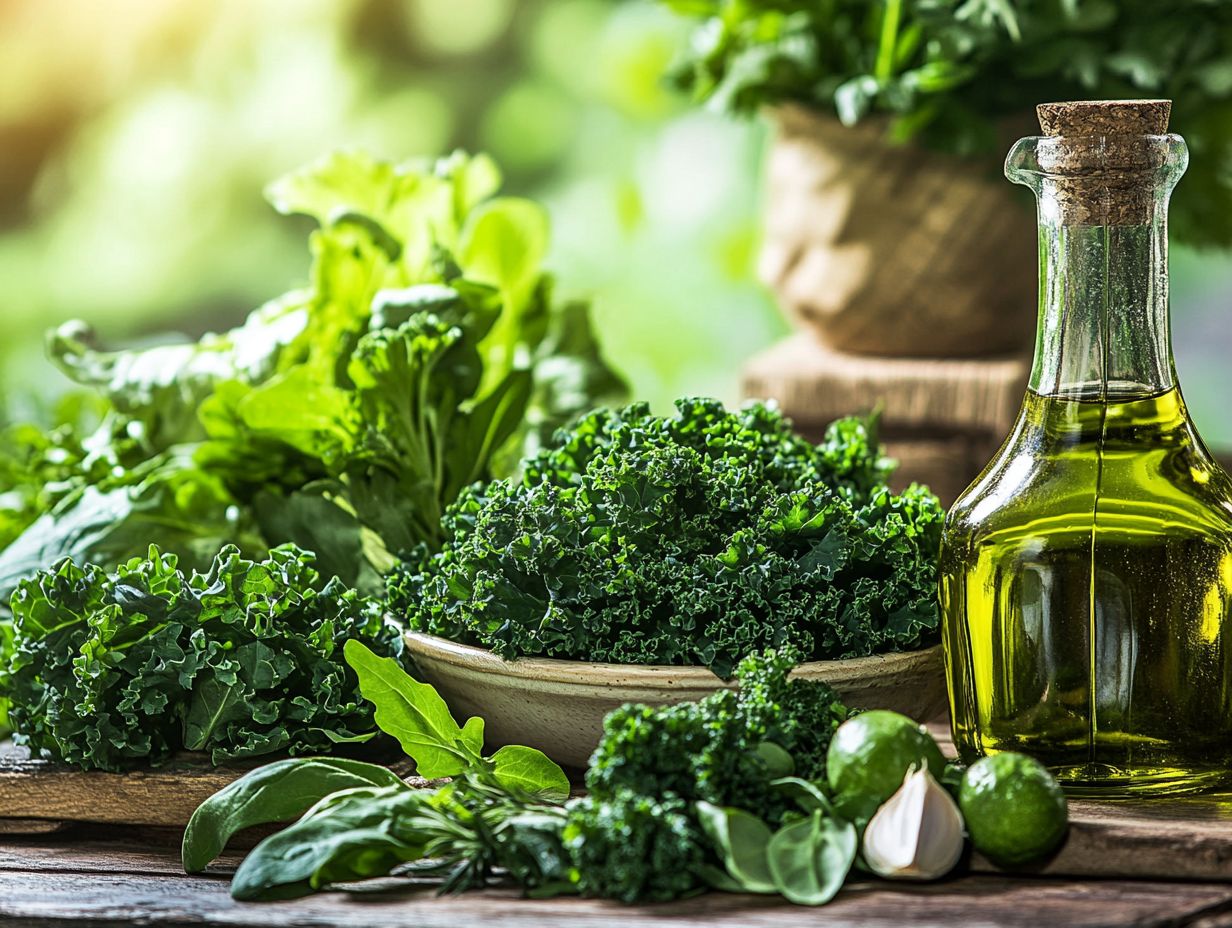
Options for increasing your vitamin K intake encompass a mix of food changes, supplements, and fortified foods that elevate nutrient absorption.
To make practical changes, prioritize leafy green vegetables such as kale, spinach, and broccoli in your meals. Incorporate these nutrient-dense foods into salads, smoothies, and stir-fries to transform your culinary repertoire while boosting your nutrient intake.
Consult a healthcare professional before taking supplements, especially if you are on medications that help prevent blood clots, like anticoagulants.
Understanding how to read labels on packaged foods is also important. Look for terms like “fortified with vitamin K” and check the nutritional information to make informed choices. This ensures you meet your daily intake needs while enhancing your overall health.
Vitamin K Deficiency and Excess
A deficiency in vitamin K can have serious health consequences, such as impaired blood clotting and weakened bones.
While excess vitamin K is relatively uncommon, it can still pose risks, particularly for those on blood-thinning medications like warfarin, as it may interact with their effectiveness.
Health Impacts and Managing Intake
Managing your vitamin K intake is essential, especially if you’re at risk of deficiency or taking blood-thinning medications like warfarin. Both too little and too much vitamin K can lead to serious health issues.
To maintain balanced vitamin K levels, incorporate a variety of foods rich in this nutrient into your diet. Think green leafy vegetables like kale and spinach as your go-to sources, with broccoli and Brussels sprouts also making significant contributions.
Regular health check-ups can help monitor your blood levels, ensuring your intake stays within a safe range, particularly if you experience fluctuations.
Consulting with healthcare providers for tailored dietary guidance is crucial, especially for those on anticoagulants. They can offer personalized advice to help you navigate any potential contraindications from consuming vitamin K-rich foods.
Frequently Asked Questions
What is Vitamin K and why is it important?
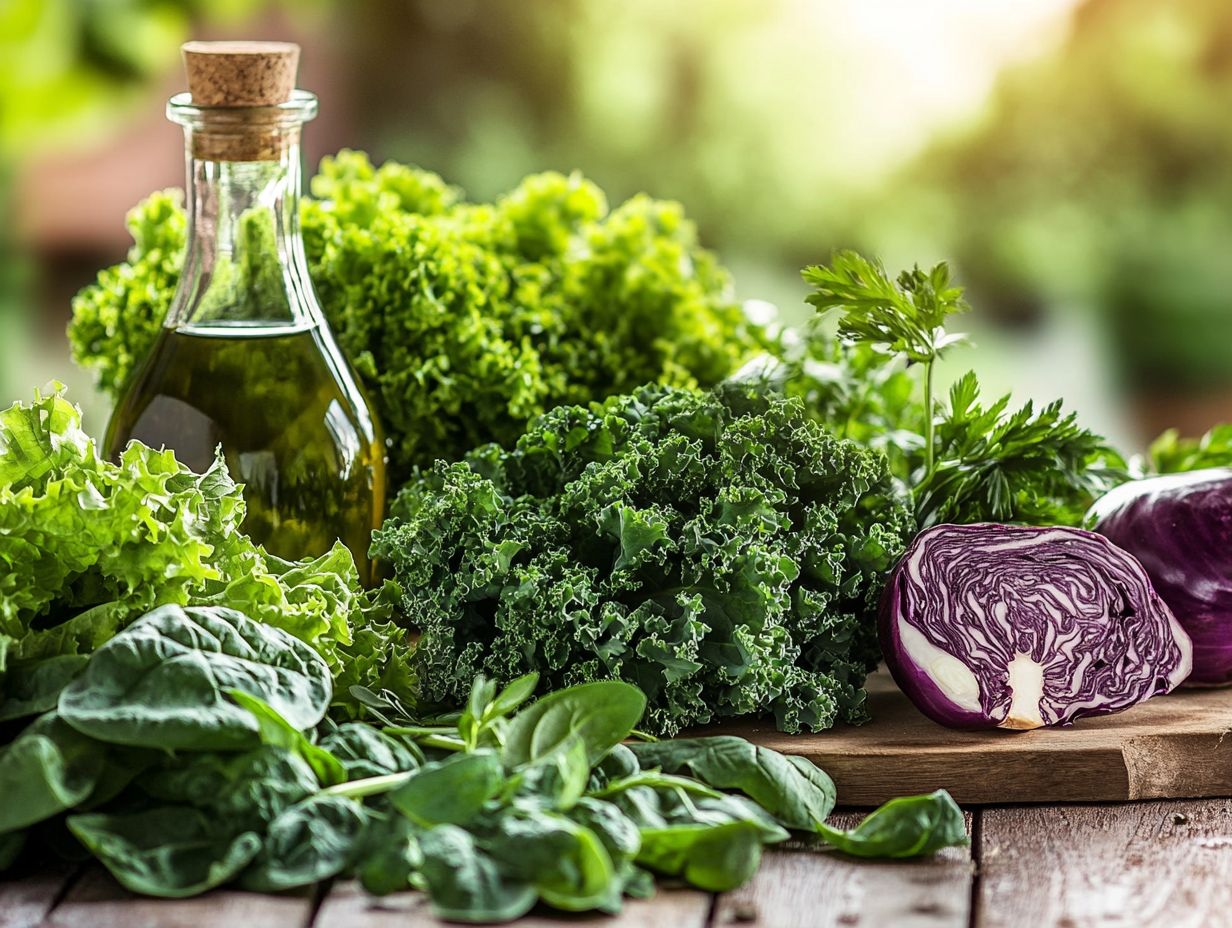
Vitamin K is a fat-soluble vitamin that plays a crucial role in blood clotting and bone health. It also helps regulate calcium levels in the body and supports heart health. A deficiency in Vitamin K can lead to an increased risk of bleeding and weakened bones.
What are the best food sources of Vitamin K?
The best sources of Vitamin K are dark leafy greens such as kale, spinach, and broccoli. Other good sources include Brussels sprouts, cabbage, asparagus, and green beans. Fermented foods like sauerkraut and natto also contain high levels of Vitamin K.
Can I get enough Vitamin K from supplements?
Supplements can provide Vitamin K, but it’s best to get nutrients from natural food sources. Your body absorbs Vitamin K from food better than from supplements.
Is Vitamin K safe for everyone to consume?
Most people can safely enjoy Vitamin K! If you take blood thinners or have a bleeding disorder, don t wait! Talk to your healthcare provider before increasing your intake of Vitamin K-rich foods or supplements.
How much Vitamin K do I need in a day?
The recommended daily intake of Vitamin K varies by age and gender. On average, adults need about 90-120 micrograms per day. For personalized advice, consult with a healthcare professional.
What are the potential benefits of consuming enough Vitamin K?
Getting enough Vitamin K can improve blood clotting and maintain strong bones.
It also supports heart health and may reduce inflammation, linking it to a lower risk of certain chronic diseases.

